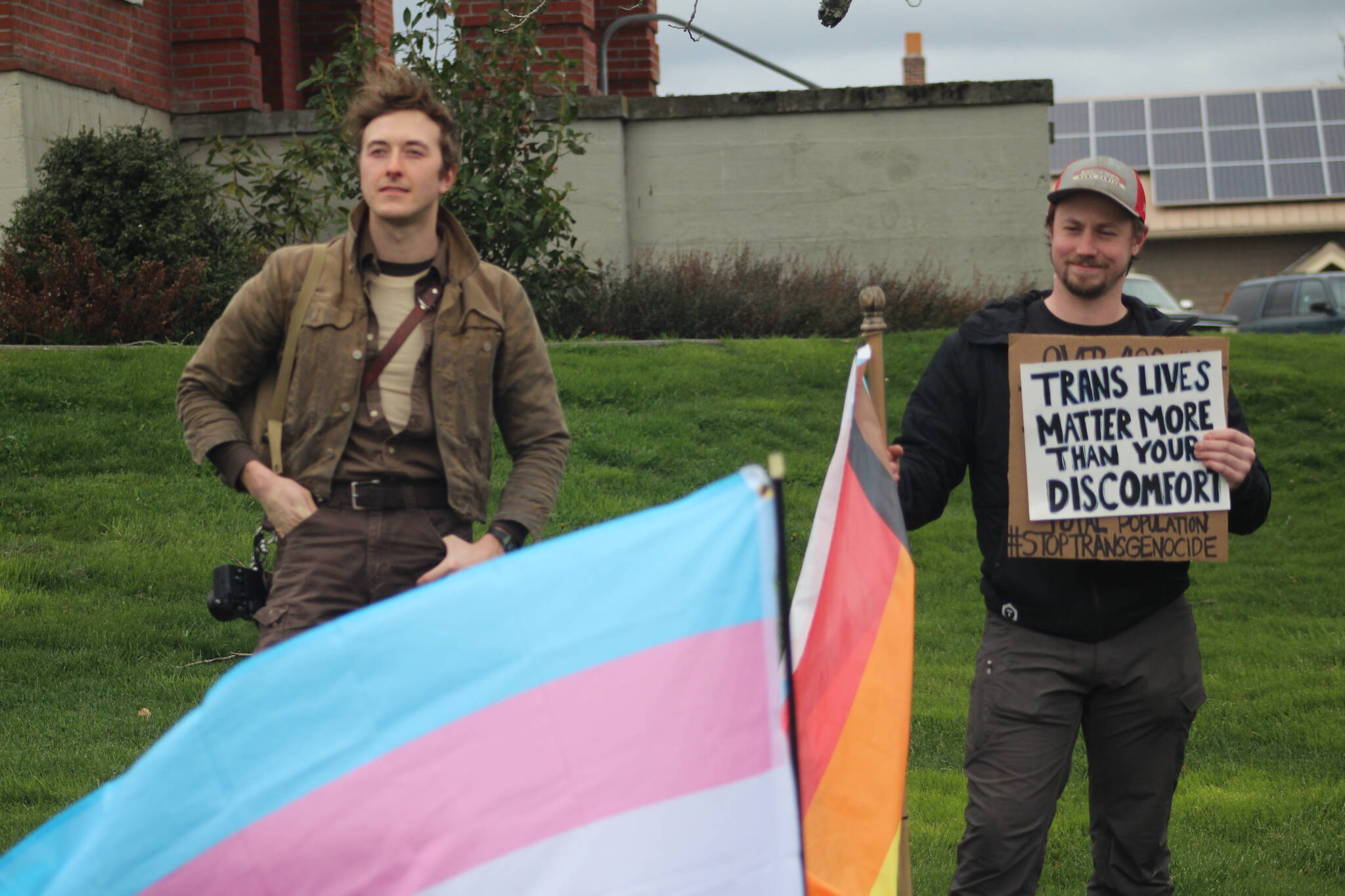By Heather Spaulding
Wind and a few sprinkles did not stop a group of 30-plus islanders from gathering at the courthouse for Transgender Visibility Day on March 31.
“We are here because right now there are over 400 bills that are anti-trans, and there are kids that need support. All of the anti-trans legislation can’t stop us from existing” event organizer Bo Brown said.
Cars honked and the attendees cheered back, as they held their signs beneath the grey skies. Despite the weather and anti-Trans sentiment in Washington DC, their hopes seemed high.
“We are so incredibly proud of people like Bo, who are taking on these events,” Deanna Osborn, Chair of the San Juan Island Pride Foundation. “It takes a village.”
At the end of January, the Joyce Sobel Family Resource Center sponsored a workshop with Page, founder of the Common Goodness Project. The session lasted four hours, and educators were given credit hours.
Page touched on the number of anti-trans bills, and also explained why they are concerning to the LGBTQIA community.
Studies have shown that double, or almost double the rate of LGBTQIA youth, as opposed to their binary counterparts, do not live at home. Some are in foster care, and others may stay with friends or are homeless. Thirty percent report being sworn at or harassed at home.
School life, Page continued, is not better. Nearly a quarter report bullying and feeling unsafe.
It isn’t surprising their behavioral health is affected. Eighty-three percent report worrying and having anxiety, 68 depression, and 38 suicidal thoughts or attempts.
There can also be secondary trauma from witnessing a fellow student who looks like them or acts like them, being attacked by people in power.
“This is not a small percent of youth,” Page added. “It is large, and growing. These kids have a hard time at home, and school and often suffer poor mental health and turn to substances to help cope.”
Washington schools are gender inclusive, which means schools must use the pronoun of the student’s choice, allow access to the bathroom that matches the gender they identify with, and have freedom from harassment.
According to Page, gender-inclusive schools lessen the impact of family rejection. They also have been shown to benefit all students. Gender-inclusive schools saw a 30 percent drop in cis-male suicide.
As far as transitioning at a young age, Page explained, there are a variety of options, and surgeries are not given to young people.
“I have only seen one person at the age of 18 have it. Generally, if the person opts for surgery, that occurs later in life,” she said.
In Washington, children must be 18 to transition on their own.
Puberty blockers have been used for a long time, in those children who experience early puberty. As far as side effects, the benefits outweigh the risk, Page said. One of the benefits is reducing risky behavior and self-harm among trans youth.
Syd Herda, a local teen that was attending the March 31 event told the Journal that since coming out, the community has been absolutely welcoming.
“There have been a few who have been awful, but for the most part, [islanders] have been incredibly supportive.”
Herda also hoped that for any trans person who has not yet come out, they realize they are not alone, and receive the same support.
“I feel like, how can we not support these beautiful human beings,” long-time islander Trish Lehman said.



